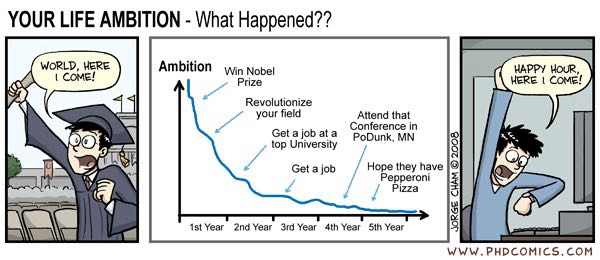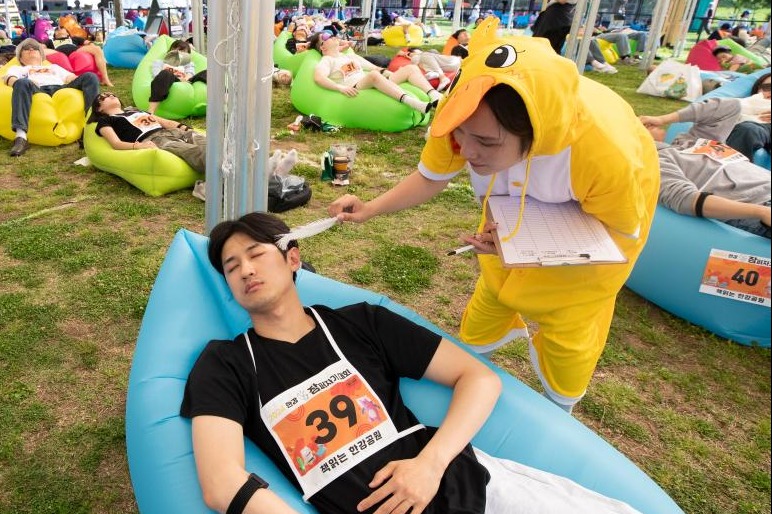The X, Y and Z on the path to higher learning
By Zhao Xu | China Daily | Updated: 2020-04-12 12:52

"It's extremely important for teachers to know the research progress of their students as well as anything that hinders such progress. Apart from offering advise, a professor could refer a student to a peer deemed more capable of providing guidance in a specific research area."
In the past, Chinese students were not known for being very forthcoming when it came to communicating with their teachers. This could have put some of them at a disadvantage, especially when the student was under the tutelage of a big-name professor and had to fight for his or her precious time, time divided between research and intense socializing and travel, including attending the numerous conferences held all over the world.
"Don't expect a full-hour one-on-one discussion in the privacy of his or her office," Sun says. "Instead, seek every opportunity to keep the professor informed of what you are doing. Stop him or her in the corridor, exchange a few words before the seminar begins. Try not to frustrate your professor by first keeping yourself out of view for a long time and then suddenly telling him or her that for one reason or another you're about to give up."
The complicated love-hate relationship between PhD candidates and their academic adviser is well chronicled. Although cases of students accusing their professors of exploitation and manipulation tantamount to mental bullying are uncommon, these days any complaints that do happen to surface get a lot of attention in social media.
"Students are in no position to argue with their professors," says a PhD candidate studying physics at the University of Minnesota who spoke on condition of anonymity.
"It's up to a student's academic adviser, ie, his professor, to decide whether a student is qualified to stand in front of the thesis defense committee. Sometimes friction is caused by the failure of a professor who does not have a hands-on approach to the research being carried out by his or her student, to follow the latter's train of thought.
"It's really a pain to have a professor who does little more than pile pressure on a poor student who's stranded in his or her research. It's even worse to have someone who imposes on you a research topic that you have little interest in or one that you believe won't lead you anywhere."
Sun takes a more eclectic view. "When it comes to choosing a focused area of research, it would be naive for a student to hope for a level of freedom unobtainable even by their teachers. These days a professor receives funding, a large part of which goes to the training of his or her PhD students, from multiple sources, many with strings attached. This means that the research projects have to be oriented toward certain requirements. In other words, you can't just do whatever you want.
"Judging by my own experience, when a student says 'This is boring', very often he or she means 'This is too hard'. Unwittingly blurring the difference between the two suggests a lack of commitment.
"Within the first two years of his or her PhD studies a student will invariably find him or herself caught in an academic dark tunnel that needs to be negotiated, and at the end of which some will emerge a qualified PhD student. Think of it as a butterfly's struggle to push its way through the tiny opening of the cocoon." For many who have gone through this metamorphosis, the payback often comes in the form of a research paper being published in an academic journal such as Nature or Science Magazine.
"On average, a PhD candidate needs to publish 3-4 papers before graduating," says the University of Minnesota physics student, who describes his life as "revolving around the writing and publishing of papers".
"They (the papers) effectively dictate my mood. Being in one's third year of PhD study without having ever published any paper would cause tremendous mental stress."
Even Yan Ning, professor of molecular biology at Princeton University in New Jersey and one of China's most celebrated scientists, felt such pressure while doing her own PhD at Princeton, after studying at Tsinghua.
"Things didn't go very well for the first two years. And it wasn't helped by the fact that a fellow Chinese student who worked in the same laboratory as me was advancing rapidly and had published several papers, as both sole author and co-author."
That was before "something suddenly clicked and everything was put right," says Yan, who last year was elected a foreign associate of the United States National Academy of Sciences and who looked back at her personal struggle with the warning that "self-doubt kills your potential".
Then there is the pressing deadline of graduation, upon which-or even one or two years before which-important choices must be made.
"It's academia versus industry," says the University of Minnesota PhD candidate. He had been taking lessons in the university's department of computer science and now envisions himself as "a programmer or a data engineer" in the near future.
























